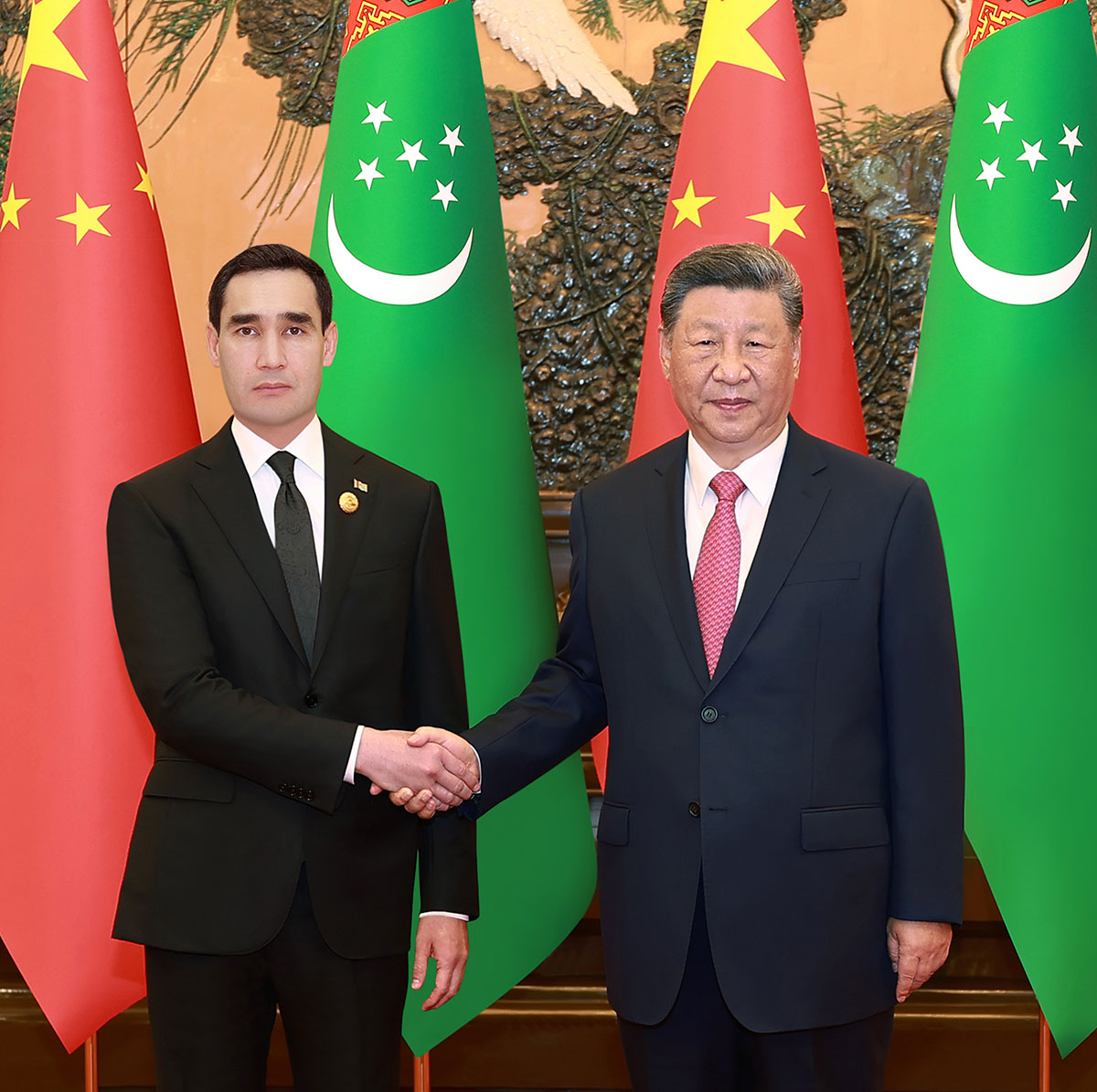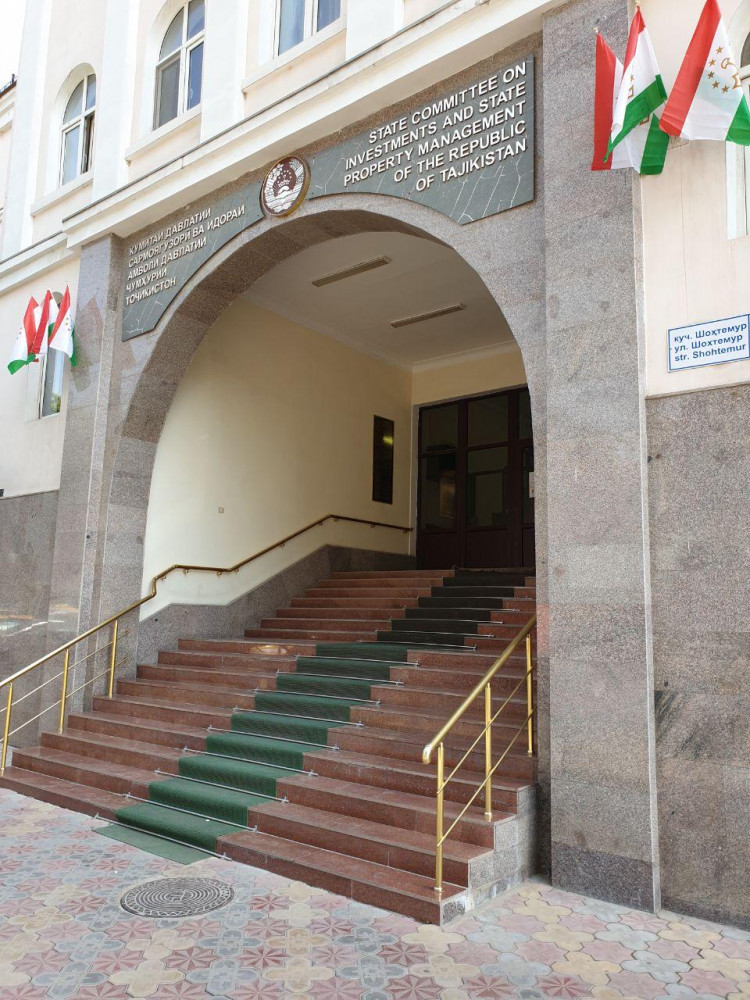The Turkmen and Chinese presidents have discussed boosting cooperation mainly in the transport and energy sectors, and the two countries’ delegations inked several partnership documents.
In a meeting in Beijing on September 2, President Serdar Berdimuhamedow expressed gratitude to his Chinese counterpart, Xi Jinping, for supporting Turkmenistan’s neutrality, noting the important role of China in the adoption of the historic UN General Assembly Resolution “Permanent Neutrality of Turkmenistan”, according to the news website Orient.tm.
He announced that the Chinese side had won an international tender for the development of the fourth stage of Turkmenistan’s largest gas field, Galkynysh.
Berdimuhamedow also supported the Global Governance Initiative put forward by the Chinese president at the SCO summit, emphasizing that its provisions coincide with Turkmenistan’s positions in international relations.
Xi Jinping, in turn, congratulated Turkmenistan on the 30th anniversary of its neutrality, highly appreciating the country’s peacekeeping policy.
At the meeting, the parties discussed “strategic economic partnership”, especially in the gas industry, and noted the importance of cooperation in the transport and logistics sectors.
The strategies of “Revival of the Great Silk Road” of Turkmenistan, as well as “Belt and Road” of China, were described as complementary and aimed at creating a single geo-economic space of Eurasia during the meeting.
The parties also emphasized the importance of scientific cooperation, the implementation of joint high-tech projects, as well as parliamentary, public, women, and youth diplomacy. It was noted that Turkmenistan and China have similar or coinciding approaches to priority issues of international politics. They are based on the desire for peace, stability and security in Central Asia and the Asia-Pacific region.
The delegations from the two countries also held talks on expanding infrastructure projects and improving logistics, with a particular focus on developing roads and railways. Both sides also exchanged views on upgrading specialized infrastructure and adopting sustainable energy production technologies. They noted that developing this sector would not only boost regional energy security but also create new opportunities for mutual investments.
At the end of the talks, the two countries signed a number of joint documents on cooperation in the fields of intellectual property, mass media, museum and education.
Earlier, during his speech at the SCO summit in the Chinese city of Tianjin on September 1, Berdimuhamedow stated that “Turkmenistan is ready to increase natural gas and electricity supplies to SCO countries. Today, we are focusing on the electricity sector and are open to discussing practical aspects of supplies and expanding directions and volumes”.
In his speech, mainly dedicated to economic cooperation, he said Turkmenistan was also prepared to deepen ties in other key areas such as transport, logistics, trade and communications.
Speaking about the “availability of extensive resources, a favorable geographical location, dynamic industrial and infrastructure development” in Turkmenistan, the president highlighted the potential of the East-West and North-South corridors.
He said that the SCO countries, together with Turkmenistan, could become vital links in regional and intercontinental supply chains by building roads and railway lines, including via Afghanistan, and added that the development of these corridors would help create a vast geo-economic space stretching from the Pacific Ocean to the Baltic Sea.
The Turkmen president noted the importance of logistics through the Caspian Sea, calling it a strategic area for future trade. He urged the SCO members to work together to put both vertical and horizontal Trans-Caspian routes into full operation and offered the use of Turkmenistan’s port of Turkmenbashi for expanded cooperation and invited dialogue on practical ways to use the facility.
Berdimuhamedow also noted that many SCO countries have the expertise and capacity to collaborate with Turkmenistan, which is actively developing its own shipbuilding industry. On communications, the president discussed a joint project to lay a fiber-optic line through Afghanistan to Pakistan and encouraged further SCO involvement to expand the reach and capabilities of such projects.
He then called on member states of the SCO to create logistics motorways connecting his country and other SCO states, saying that “Turkmenistan and the SCO states can become key links in logistics routes in the East-West and North-South directions”.
“Uniting efforts and potentials will help create a holistic geo-economic space from the Pacific Ocean to the Baltic,” Berdimuhamedow said, adding that this space would encompass major economic zones, including the Asia-Pacific region, Central and South Asia, Russia, and the Middle East.
The summit brought together leaders from SCO member states including Russia, Belarus, India, Iran, Kazakhstan, Kyrgyzstan, China, Pakistan, Tajikistan and Uzbekistan, alongside dialogue partners from Azerbaijan, Türkiye, Turkmenistan, Armenia, Vietnam, Egypt, Indonesia, Cambodia, Laos, Malaysia, Maldives, Mongolia, and Nepal, plus representatives from 10 international organisations including UN Secretary-General Antonio Guterres.



